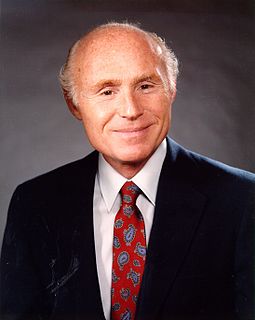A Quote by Orrin Hatch
We must use a judicial, rather than a political, standard to evaluate [a nominee's] fitness for the Supreme Court. That standard must be based on the fundamental principle that judges interpret and apply but do not make law.
Related Quotes
The civil magistrate cannot function without some ethical guidance, without some standard of good and evil. If that standard is not to be the revealed law of God (which, we must note, was addressed specifically to perennial problems in political morality), then what will it be? In some form or expression it will have to be the law of man (or men) — the standard of self-law or autonomy.
People whose terms go for five years or longer, like FCC commissioners. That's a higher standard. Then district judges, who are appointed for a lifetime but can be overruled. Then Court of Appeals judges. They're not the highest level, but they're almost the final word. And then, of course, the Supreme Court.
Judges decide upon copyright law. They decide upon trademark law. They decide upon scientific issues. They decide upon very complex technical issues on a daily basis. So you must have confidence in the Supreme Court, that they will apply their mind and they will come out with a decision consistent with the Constitution.
That's the one thing a politician mustn't have - political opinions or principles. He can have prejudices - indeed he must have prejudices and share all the popular political superstitions of the moment as ardently as he can. But he must not have principles. He must never let the people suspect that they cannot eat their cake and have it. He must promise them a defense program and a higher standard of living. He must never use that dreadful little word or.





























